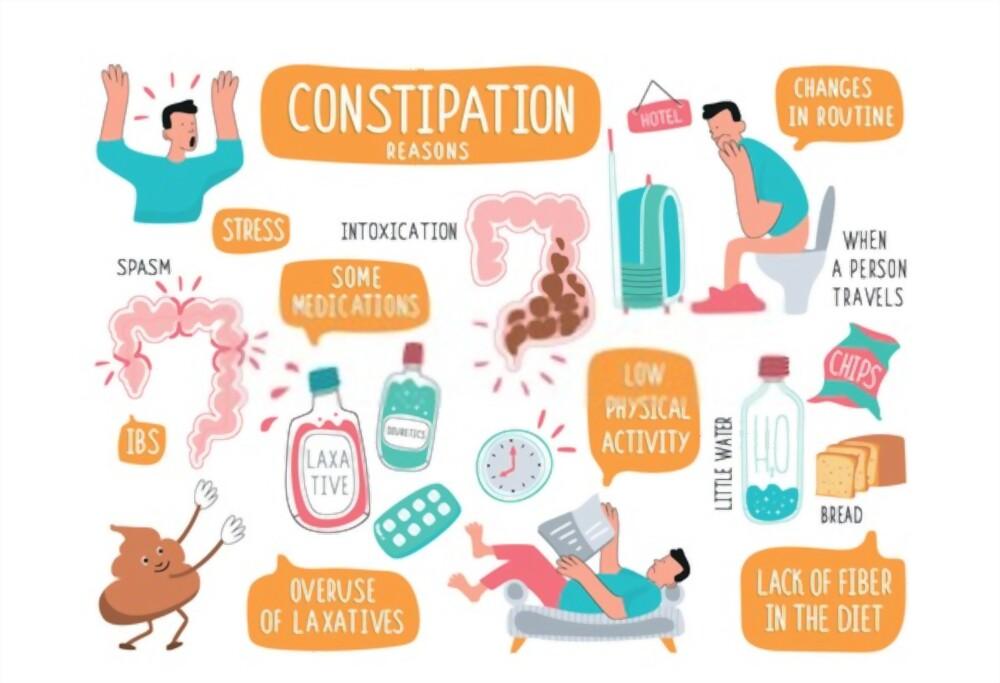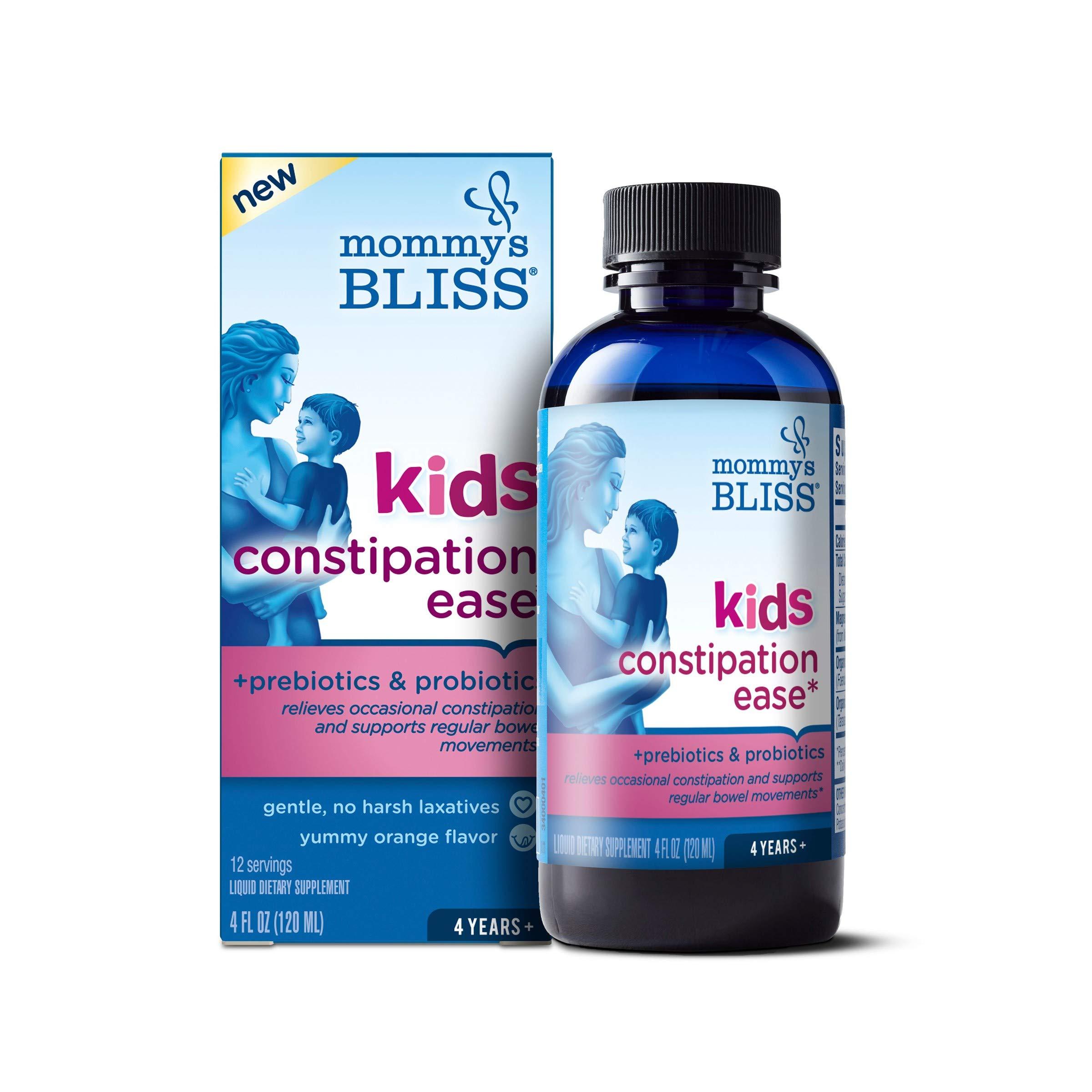In a world where comfort and well-being often take center stage, one common yet frequently overlooked ailment can disrupt our daily lives: constipation. This condition, characterized by infrequent bowel movements and discomfort, affects millions, leading many to seek relief through various remedies and treatments. Enter the realm of constipation medicine—a diverse landscape of options ranging from over-the-counter solutions to prescription medications. In this article, we will explore the different types of constipation medicines available, their mechanisms of action, and the considerations to keep in mind when choosing the right approach for relief. Whether you’re navigating the complexities of digestive health for the first time or are a seasoned traveler on the road to regularity, understanding these options can empower you to take control of your wellness journey.
Understanding the Causes of Constipation for Better Treatment Choices
Constipation can stem from various factors, each impacting digestive health in unique ways. Dietary choices play a crucial role; inadequate fiber intake can lead to harder stools, making bowel movements more challenging. Additionally, dehydration is a common culprit, as insufficient water consumption can hinder the digestive process. Other contributing elements include sedentary lifestyles, where a lack of physical activity slows down bowel motility, and certain medications that may cause constipation as a side effect.
Understanding these underlying causes not only aids in selecting appropriate remedies but also empowers individuals to make informed lifestyle adjustments. For instance, increasing fiber-rich foods and staying hydrated can significantly improve bowel function. It’s also useful to be mindful of stress levels, as anxiety and tension can interfere with digestive health. Here’s a brief overview of common causes:
| Cause | Impact |
|---|---|
| Low Fiber Intake | Results in harder stools |
| Dehydration | Slows digestion |
| Lack of Exercise | Reduces bowel motility |
| Medication Side Effects | May cause constipation |
| Stress | Affects gut function |
Exploring Over-the-Counter Remedies for Quick Relief
When looking for quick relief from constipation, over-the-counter remedies can serve as an effective solution. These products often come in various forms, including tablets, liquids, and powders, catering to different preferences and needs. Below are some commonly used types of OTC remedies to consider:
- Laxatives: These stimulate bowel movements and can provide fast relief.
- Stool softeners: These help to soften the stool, making it easier to pass.
- Fiber supplements: Increasing dietary fiber can promote regularity.
- Enemas: These deliver liquid directly into the rectum to induce a bowel movement.
It’s essential to choose the right product based on your specific situation and preferences. For instance, some remedies may work faster than others, while some might be gentler on the digestive system. Here’s a quick comparison of a few popular options:
| Remedy | Form | Time to Relief |
|---|---|---|
| Laxatives | Tablets, Liquid | 1-6 hours |
| Stool Softeners | Capsules | 1-3 days |
| Fiber Supplements | Powder, Chewable | 2-3 days |
| Enemas | Liquid | 15-60 minutes |
The Role of Prescription Medications in Managing Chronic Constipation
Chronic constipation can significantly impact an individual’s quality of life, leading to discomfort and frustration. Prescription medications are often considered when over-the-counter remedies fail to provide relief. These medications can serve various functions, targeting the underlying mechanisms of constipation. Some common categories of prescription medications include:
- Stool softeners: These help to moisten the stool, making it easier to pass.
- Osmotic laxatives: These draw water into the bowel, promoting bowel movements.
- Stimulant laxatives: These stimulate the muscles of the intestines to facilitate movement.
- Guanylate cyclase-C agonists: These increase fluid secretion in the intestines.
While these medications can be effective, it’s crucial for patients to work closely with healthcare providers to determine the most appropriate treatment plan. Monitoring potential side effects and adjusting dosages accordingly can help enhance the effectiveness of the therapy. Below is a simple table summarizing some common prescription medications used for chronic constipation:
| Medication Type | Mechanism of Action |
|---|---|
| Stool softeners | Helps to soften stool |
| Osmotic laxatives | Increases water retention in the intestines |
| Stimulant laxatives | Stimulates intestinal contractions |
| Guanylate cyclase-C agonists | Enhances fluid secretion in the gut |
Natural Alternatives: Dietary Changes and Supplements
Exploring natural alternatives for relieving constipation can often lead to effective dietary changes that promote regularity. Incorporating certain foods into your daily routine can enhance digestive health and help alleviate discomfort. Consider adding the following to your meals:
- High-fiber fruits: Apples, pears, and berries
- Leafy greens: Spinach, kale, and Swiss chard
- Whole grains: Oats, quinoa, and brown rice
- Legumes: Lentils, chickpeas, and black beans
In addition to dietary changes, certain supplements may also provide relief. Supplements can offer concentrated sources of fiber and other beneficial compounds that aid digestion. Popular options include:
- Psyllium husk: A soluble fiber that can help soften stools
- Magnesium: Known for its muscle-relaxing properties, which can help move things along
- Probiotics: Beneficial bacteria that support gut health
| Supplement | Benefits |
|---|---|
| Psyllium Husk | Softens stools and improves bowel regularity |
| Magnesium | Helps relax the intestines for smoother transit |
| Probiotics | Enhances gut flora for better digestion |
When to Seek Medical Advice for Persistent Constipation
If you’re experiencing constipation that lasts for more than a few weeks or if it persists despite lifestyle changes and over-the-counter treatments, it’s essential to consult a healthcare professional. Signs that indicate you should seek medical advice include:
- Severe abdominal pain that doesn’t improve
- Blood in the stool or rectal bleeding
- Unexplained weight loss or appetite changes
- Symptoms of nausea or vomiting, especially if accompanied by constipation
- Changes in bowel habits that are unusual for you
Additionally, if you are over 50 or have a history of gastrointestinal issues, it’s prudent to be particularly vigilant. Your healthcare provider may perform tests to rule out underlying conditions, such as:
| Condition | Description |
|---|---|
| IBS (Irritable Bowel Syndrome) | A common disorder affecting the large intestine, causing cramping, abdominal pain, or changes in bowel habits. |
| Colon Cancer | A serious condition where malignant cells form in the colon or rectum; early detection is vital. |
| Hypothyroidism | A condition where the thyroid gland is underactive, leading to slower metabolism and digestion. |
Integrating Lifestyle Changes for Long-Term Digestive Health
To cultivate a strong foundation for digestive health, consider adopting a range of lifestyle changes that can synergize with any medication you might be using. Begin by incorporating a diet rich in fiber, which plays a crucial role in promoting regular bowel movements. Foods such as:
- Whole grains (oats, brown rice)
- Fruits (apples, berries, pears)
- Vegetables (carrots, broccoli, leafy greens)
- Legumes (beans, lentils, chickpeas)
Additionally, staying hydrated is essential for maintaining digestive function. Aim for at least 8 glasses of water a day, and consider the following habits that can further enhance your gut health:
- Regular exercise – even a brisk walk can stimulate digestion.
- Mindful eating – take time to chew and enjoy your meals.
- Consistent meal times – establish a routine to regulate your digestive system.
- Manage stress – practices like yoga or meditation can ease tension that impacts digestion.
| Tip | Benefit |
|---|---|
| Increase fiber intake | Promotes regular bowel movements |
| Stay hydrated | Softens stool and aids digestion |
| Regular exercise | Stimulates gut motility |
| Mindful eating | Improves digestion and satisfaction |
Q&A
Q&A: Understanding Constipation Medicine
Q: What exactly is constipation, and why does it occur?
A: Constipation is a common digestive issue characterized by infrequent bowel movements or difficulty passing stools. It can occur for various reasons, including a low-fiber diet, dehydration, lack of physical activity, certain medications, or underlying health conditions. Essentially, when the colon absorbs too much water from the waste material, it can lead to hard and dry stools that are challenging to pass.
Q: When should someone consider using constipation medicine?
A: If lifestyle changes such as diet, hydration, and exercise fail to alleviate symptoms after a few days, it may be time to consider constipation medicine. Additionally, if constipation is accompanied by severe discomfort, bloating, or bleeding, consulting a healthcare professional is crucial before self-medicating.
Q: What types of constipation medicines are available?
A: There are several categories of constipation medicines, including:
- Stimulant Laxatives (e.g., bisacodyl, senna): These stimulate the intestinal muscles to promote bowel movements.
- Osmotic Laxatives (e.g., polyethylene glycol, lactulose): These draw water into the intestines, softening stools and making them easier to pass.
- Bulk-forming Agents (e.g., psyllium, methylcellulose): These increase stool bulk by absorbing water, which helps stimulate bowel movements.
- Lubricants (e.g., mineral oil): These help ease the passage of stool by coating it in a slippery substance.
- Prescription Medications (e.g., linaclotide, lubiprostone): For chronic constipation, these medications can help increase fluid secretion in the intestines, aiding in stool passage.
Q: Are there any side effects associated with constipation medications?
A: Yes, each type of constipation medication comes with potential side effects. Stimulant laxatives may cause abdominal cramps or diarrhea with prolonged use. Osmotic laxatives can lead to bloating and gas. Bulk-forming agents may cause gastrointestinal discomfort if not taken with enough water. It’s essential to read labels and consult a healthcare provider, especially for long-term use.
Q: Can lifestyle changes effectively manage constipation without medication?
A: Absolutely! Many people find relief through lifestyle modifications. Increasing dietary fiber, drinking plenty of fluids, exercising regularly, and establishing a routine for bowel movements can significantly improve symptoms. Keeping a food diary might also help identify specific triggers for constipation.
Q: Is it safe to use constipation medicine long-term?
A: Long-term use of most over-the-counter laxatives is generally not recommended without medical supervision. The body can become dependent on them, leading to decreased bowel function. If you find yourself needing laxatives frequently, it’s important to discuss your situation with a healthcare professional to explore underlying issues and safer alternatives.
Q: What should I do if constipation medicine doesn’t work?
A: If you’ve tried constipation medicine without relief, it’s time to consult a healthcare provider. They can assess your situation, possibly run tests to identify underlying conditions, and recommend more effective treatment options tailored to your needs.
Q: Are there any natural remedies for constipation?
A: Yes, many people turn to natural remedies to alleviate constipation. Options include consuming prunes or prune juice, using flaxseeds, increasing fiber-rich foods like fruits, vegetables, and whole grains, and even practicing relaxation techniques like yoga, which can promote healthy bowel function.
By understanding constipation and its treatment options, patients can make informed decisions and work towards effective relief. Always consult a healthcare professional for personalized advice.
Key Takeaways
navigating the world of constipation medicine doesn’t have to feel like an uphill battle. With a myriad of options available—from over-the-counter remedies to prescription solutions—individuals can find the right approach to alleviate their discomfort and restore digestive harmony. It’s essential to remember that what works for one person may not work for another, underscoring the importance of personalized care and consultation with healthcare professionals. As we prioritize our well-being, let’s also embrace the power of lifestyle changes, such as hydration, diet, and exercise, which can complement medicinal interventions. Armed with knowledge and a proactive mindset, we can turn the page on constipation and step confidently towards a healthier, more comfortable tomorrow.
